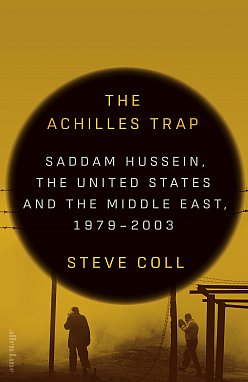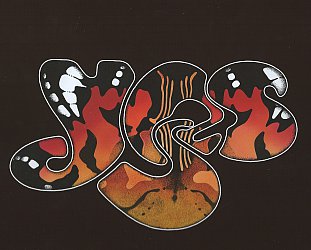Graham Reid | | 3 min read

We might as well admit it. No one, not anyone at all, knows what's going on in that sand-trap of chaos we loosely call The Middle East.
Not the finest minds in political studies departments or the seasoned diplomats who shuffle between capitals, and certainly not former president Trump's expert Jared Kushner who recently said that “Gaza's waterfront property could be very valuable” for the Israelis, and that Palestinians having their own state was “a super bad idea”.
The region defeats intelligence – and intelligence reports – because it is an alphabet of problems, contradictions, special interests, history and religion: from Arafat, Abu Nidal, Baathists and “Chemical” Ali through Gaza, Hamas, Hezbollah and now the Houthis, to Israel, Iraq, Iran, jihad, Jerusalem . . . need we go on as far Yemen and Zionism?
From the top of the totem pole where elected – or unelected – heads of state hold court down to the tribal warlord cradling a Russian-made weapon in some arid and remote valley, everyone sees the world from their own disadvantage point.
The Pulitzer-winning journalist Steve Coll (Washington Post, New Yorker, now professor emeritus at the Columbia Journalism School) probably has a better handle on things than most, but he's smart enough to simply recount events rather than interpret them.
The Achilles Trap – subtitled “Saddam Hussein, the CIA and the Origins of America's Invasion of Iraq” – is remarkable in that Coll teases out the history and the main players in language which is readable and engaging even if the events range from the world changing down to the absurd.
Speaking of which, an example: In 1983 during the war between Iraq and Iran (remember that one?), the CIA secretly invited a delegation from Saddam's Iraq over to their Langley headquarters for team-building and information sharing. But some of Saddam's family came along for the ride and skipped the meetings to go shopping for pistols and silencers.
They didn't understand why they couldn't take them home. It was in violation of the US position of not supplying arms to either side in the conflict. (Information? Well, that's another story and the US played both sides.)
So while the war played out on the big screen down in the cheap seats were thugs who wanted pistols with silencers so they could carry out assassinations and administer street justice.
Coll's impressive 480 page book (with 40 pages of tiny type footnotes) deals with the 2003 American invasion of Iraq but of necessity goes into the background which started 20 years before.
Anyone approaching the region with a genuine attempt to understand it knows that there is a long backstory to any event or character who appears to strut their time on the stage, maybe right back to the day Moses stood on Mt Nebo in present day Jordan and saw the promised land on the other side of the river.
And what a story Coll tells.
Try figuring this: while the Iraqis and Iranians (under Ayatollah Khomeini) are at war the US – through the agency of the CIA – is supplying each side with information on the other's locations and movements, but not arms. They come from . . . well, Israel or Russia or China.
Given the constant movement of the chess pieces – Iraq accepting assistance from Israel which would increasingly become its sworn enemy – it is easy to see why Saddam (who moved against factions in his Baath Party when he gained power and made a public display of sentencing many to death) was suspicious of everyone, not the least the Americans.
And why he was so keen to have a nuclear capability, just like so many other countries.
But whether he did have weapons of mass destruction (WMDs) became the question over time.
Iraq, the one-time US ally now became the outlier.
The question which hangs over all subsequent events is simple: Saddam knew he didn't have WMDs so why, when pushed to the brink, didn't he just say so and let the weapon inspectors in to have a poke around to find nothing?
What was this brinkmanship all about?
Why didn't he take the face-saving proposal from Russia's Putin to step down as president but remain chairman of the Baath Party? Or Bush's proposal that he step down to allow the US to forgo war?
After all, when the tumult and snooping died down he could probably make his way back.
Aside from Kuwait, no one in the neighbourhood wanted the US to invade which would make the region even more unstable, probably see the rise of the Shiite minority in Saudi Arabia and the empowerment of the Kurds (that's a whole other story which Coll weaves through) and . . .
Well, all that other stuff stewing in the pot.
Two days before the invasion Saddam published his fourth novel, Get Out, Damned One! set in ancient Babylon and written in broadly metaphorical form about a visionary's grandsons who represent Judaism, Christianity and Islam.
Sometimes he lived in another world from the chaotic reality he created around himself.
But Coll's wonderful book is about more than Saddam Hussein who ended his days on the gallows in December 2006.
It is about political manoeuvring, deals made and broken (often made to be broken), of fallible men, thugs and hoodlums, of posturing presidents, the full extent of the military-industrial complex and that alphabet soup of tribes, factions, political parties, military men, shadowy secret service figures and . . .
No one know what goes in in that region.
But Steve Coll – who also wrote on Bin Laden among other books – can at least give you the information.





post a comment